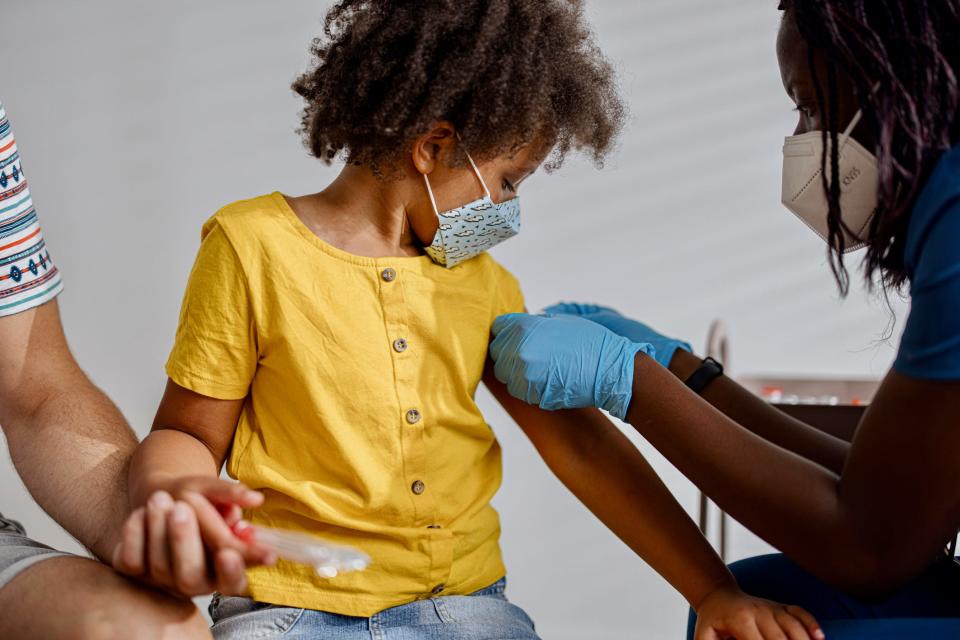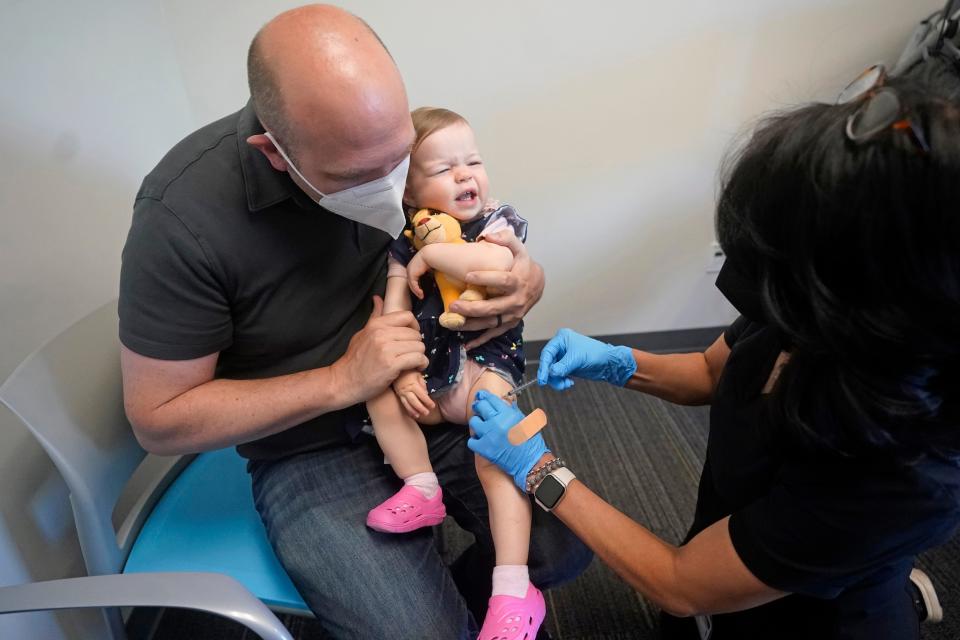Why does COVID-19 usually hit adults so much harder than kids? The nose knows.
It has been clear since early in the coronavirus pandemic that children ‒ typically magnets for colds and the flu ‒ weren't getting very sick from COVID-19. Now, a study suggests the answer lies in their noses.
The study from researchers at Stanford University and Cincinnati Children's Hospital found the immune systems of younger children typically wipe out the SARS-CoV-2 virus when it arrives in the nose.
In adults, by contrast, the virus that causes COVID-19 generally reaches the bloodstream before the immune system begins to fight back. That allows the virus to cause more havoc in adults.
The findings suggest there may be a way to provide protection for adults by mimicking what is naturally found in children.

Children aren't just little adults
More than 90% of children age 4 and younger in the U.S. have been infected with the virus that causes COVID-19, according to the Centers for Disease Control and Prevention. But children under 5, who represent about 6% of the U.S. population, account for far less than 1% of COVID-19 deaths in the country.
The discovery came during a collaboration between an Ohio pediatric hospital and a research lab in Northern California. Early in the pandemic, researchers at Stanford University asked their collaborators at Cincinnati Children's to send them samples from children who were severely ill with COVID-19. But they couldn't find any.
Curious, the teams decided to explore why children seemed far less affected by the virus than adults.
The study, co-funded by the National Institute of Allergy and Infectious Diseases, involved 81 infants and children whose mothers had enrolled during their third trimester of pregnancy. Parents collected weekly nasal swabs from their babies starting at 2 weeks old, and blood was drawn regularly beginning at 6 weeks and if the children became infected with the virus.
Fifty-four of the children were infected and had mild COVID-19 during the study period, while the remaining 27 tested negative throughout.
Thirty-eight mothers, half of whom contracted COVID-19, also provided weekly nasal swabs, and 89 adults with COVID-19 and 13 health controls provided blood samples.
The study found that when an adult is infected with COVID-19, their immune system quickly produces a burst of antibodies for the virus. The presence of these antibodies then drops off, falling tenfold within six months, the study found.
In infants and younger children, however, it takes longer to produce that spike, but then their antibody levels don't decrease. Over the 300-day observation period, children's antibody levels either remained high or kept climbing, eventually reaching the same level as adults during the spike.
The range of antibodies they produced was also a bit narrower than adults did, the researchers noted. Their antibodies specifically targeted the original variant but were less protective against others.
Infected adults also had high levels of proteins called inflammatory cytokines in their blood, which can sometimes cause dangerous overreactions to the virus, leading to severe disease and even death. In contrast, the children and babies had high levels of inflammatory cytokines in their noses, along with an antiviral, but not in their blood.
Stimulating high levels of cytokines in the noses of adults, perhaps with a nasal vaccine, might provide the same level of protection as children naturally have, the researchers said.
Vaccines are still recommended for kids
Although younger children typically have this biological protection against severe disease, experts still recommend vaccination to prevent rare but extreme responses to the virus.
All children 6 months and older are eligible for COVID-19 vaccines and boosters.
Although children with underlying medical conditions are at higher risk for severe COVID-19 infections, others who were otherwise healthy also became very sick.
Contact Karen Weintraub at kweintraub@usatoday.com.
Health and patient safety coverage at USA TODAY is made possible in part by a grant from the Masimo Foundation for Ethics, Innovation and Competition in Healthcare. The Masimo Foundation does not provide editorial input.

This article originally appeared on USA TODAY: Why don't kids usually get really sick from COVID? The nose knows.
